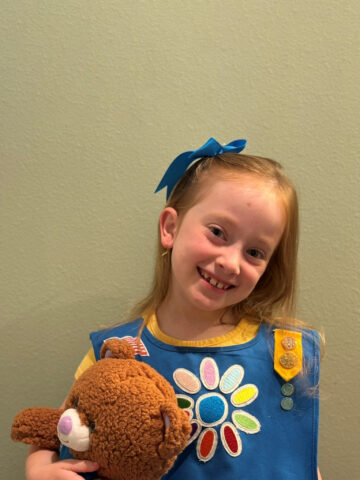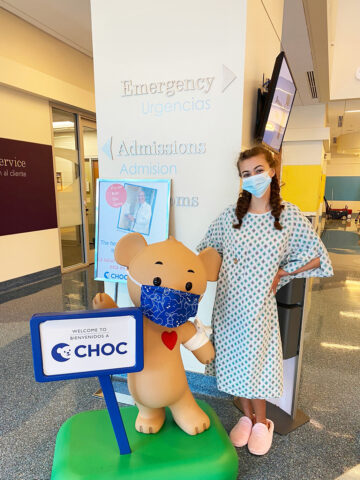Many people are fascinated by medicine, and kids especially have a lot of questions for their doctors. We spoke to Dr. Peter Yu, a pediatric general and thoracic surgeon at CHOC, about the most common questions he gets as a pediatric surgeon. You can also follow along for a day in the life of Dr. Yu here.
A pediatric surgeon operates on kids. We operate on kids from newborn – even premature babies – all the way up to teenagers and young adults. We operate all over the body, but mostly in the abdomen and the chest. We do everything from removing lumps and bumps on the skin, to hernias, to minimally-invasive surgery, to major open surgery and everything in between.
I try to get a good night’s sleep every night. I aim for getting seven to eight hours per night. That number goes down when I’m on call. Surgeons rotate call coverage overnight, so there is always a pediatric surgeon on campus at all times. During those nights, I’m up and I’m busy.
Feeling tired doesn’t really affect my ability to operate. We are well-trained to operate under all conditions. Surgeons feel good even if they’re a little tired. Plus, being in the operating room is exciting and enjoyable for surgeons so we are wide awake and ready to go during every operation.
I often don’t eat breakfast. My body is pretty used to not eating until lunchtime. That said, from time to time there are tater tots in the physician dining room – they are really good, and something that I enjoy every once in a while.
Four years of undergraduate studies, four years of medical school, and then an additional 10 years of training after that. In total, 14 years after college. In the 10 years of training, I did a general surgery residency for seven years, a surgical critical care fellowship for one year, and then a pediatric surgery fellowship for two years.
This is a hard question to answer. If you consider all the operations I did during my training plus the operations I’ve done here at CHOC, I’ve probably done about 4,000 operations.
Pediatric surgeons do a lot of different surgeries. Some procedures are quick, lasting a matter of minutes. Others are very complex and last for hours. The longest operation I’ve done was about seven or eight hours long. In that operation, I had to fix a congenital problem with the diaphragm, the intestine and the esophagus.
The vast majority of the time, we do not leave the operating room during procedures to use the restroom, eat or take any breaks. The ability to withstand long periods of time in the operating room comes with our years of surgical training. We are used to being in the operating room for many hours at a time. When we are operating, we feel very focused. We are able to tune out everything else besides the procedure at hand. At the end of an operation, that is when we will realize we feel hungry or tired. Until the surgery is over, we are in the zone.
The vast majority of the time, no – because we’ve had so many years of training, so we feel well-prepared for all situations. However, there are times when we do feel nervous or anxious. Sometimes, I think a little anxiety before an operation is actually a good thing. It keeps us sharp and focused. Our years of training allows us to control our emotions and remember to take care of the patient.
I always knew I wanted to be a doctor because my older brother who I really looked up to became a doctor. When I started medical school, I thought I definitely did not want to be a surgeon. That was because surgeons appeared to be not nice people on TV shows. I also thought being in the operating room would be tedious. The reality for me, was that after I started my surgical rotation as a medical student, I found that surgery was really exciting, and that surgeons were some of the most kind, dedicated, hard-working people I had ever met. Those things really motivated me to become a surgeon.





